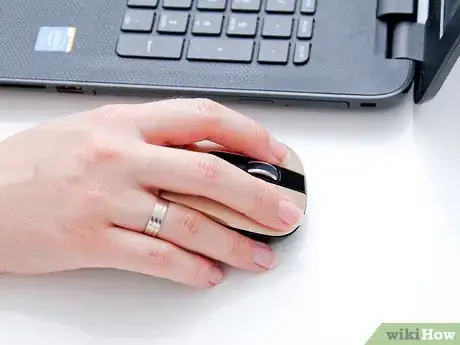This article was co-authored by wikiHow staff writer, Megaera Lorenz, PhD. Megaera Lorenz is an Egyptologist and Writer with over 20 years of experience in public education. In 2017, she graduated with her PhD in Egyptology from The University of Chicago, where she served for several years as a content advisor and program facilitator for the Oriental Institute Museum’s Public Education office. She has also developed and taught Egyptology courses at The University of Chicago and Loyola University Chicago.
There are 8 references cited in this article, which can be found at the bottom of the page.
This article has been viewed 131,292 times.
Learn more...
When you spend the week working, your days off seem to go by in the blink of an eye. To get the most out of your weekend, you may have to shake up your routine a bit. For a weekend that feels longer and more satisfying, plan on trying something new. Work on balancing your work and home responsibilities with taking time for yourself. Finally, make the most of your free time by sticking to a healthy sleep schedule.
Steps
Changing Your Routine
-
1Start with simple changes. Doing something different can be a great way to spice up a weekend and make it feel more satisfying. However, your weekend adventures don’t have to be elaborate. If you don’t feel like making any major plans for your weekend, you can mix up your routine with a few simple activities.[1] For example, you might try:
- Getting up early to watch the sunrise or enjoy an early-morning walk.
- Trying a new brunch spot in your neighborhood.
- Working on a fun home improvement or arts and crafts project.
- Trying out a new recipe.
- Signing up for a fun weekend class, like an art or exercise class.
-
2Try something new. When you try something new, your brain pays more attention to the details. This makes your memory of the event feel longer and more vivid than your memories of doing something routine. Plan to try something new over your next weekend. Your adventure will create an enduring and satisfying memory that you can carry with you into the work week.[2]
- Keep in mind that new and exciting activities seem to go by faster while they are actually happening! However, a weekend packed with new experiences will feel longer in hindsight than a weekend spent lounging in front of the TV.
Advertisement -
3Create a schedule for your weekend. You can use your time over the weekend best if you plan ahead. Decide exactly what you’re doing, and come up with a simple schedule. Discuss your plans with anyone else you’d like to spend time with, like friends or family.[3]
-
4Prepare for weekend activities in advance. Once you’ve decided what you’re doing for the weekend, make the appropriate arrangements and gather whatever supplies you need.[4]
- For example, if you’re planning on a weekend getaway, make sure you know where you’re going and how early you need to set out to spend enough time there.
- If you’re doing something like going to a show, staying at a hotel, or eating at a fancy restaurant, call ahead to make sure you can get tickets or reserve your spot.
-
5Prioritize your Friday nights. It can be easy to overlook Friday night as an important part of the weekend. You may feel too exhausted to do much on Friday after a long week of work. However, even planning simple, low-key events can make your Friday evenings feel more enjoyable and your weekends seem longer.
- Set aside time on a Friday evening for something enjoyable that does not require much energy, like a family movie night or a self-pampering evening in the bath.
Balancing Work and Fun
-
1Decide on a few key tasks for the weekend. Sometimes you have to do a little work over the weekend, whether it’s take-home work from your job or chores to do around the house. However, try not to let work consume your entire weekend. Pick a few high-priority tasks and focus on those.[5]
-
2Make a schedule for getting your work done. Plan to get your tasks out of the way early in the weekend, so that you can spend the rest of your time relaxing and enjoying yourself.
-
3Prioritize your tasks. Don’t let yourself feel overwhelmed by the amount of stuff you need to get done. Settle on two or three things that need your immediate attention, and decide on a schedule for tackling anything else during the week, or during your next weekend.
-
4Try to get chores done during the week. If you can, set aside a little time every day during the week to tackle mundane chores like doing housework, buying groceries, or paying the bills. That way, you will have more free time during your weekend to do things you enjoy.[6]
-
5Plan ahead for the next week. Set aside a few minutes during your weekend to plan for the upcoming week. Make a to-do list, set a few goals for things you would like to accomplish, and rough out a schedule for yourself. Taking a few minutes to write up a plan of action for the next few days can help you take your mind off your responsibilities and focus on more enjoyable things.[7]
-
6Set aside time just for relaxing. Try to give yourself at least 24 hours during the weekend to focus on doing things you enjoy. Set specific hours for your downtime, and avoid the temptation to do or think about things that stress you out.[8]
-
7Disconnect from social media. In addition to minimizing work and chores during the weekend, you can help yourself relax and feel more in the moment by disconnecting from social media. Spending too much time on social media will not only eat away your weekend hours, but can also contribute to feelings of stress and isolation. Put away your phone or tablet, resist the urge to check your email, and simply focus on the here and now.[9]
- Schedule internet-free time during your weekend. If it helps, turn off your devices or disconnect them from the internet during that time.
Maintaining a Healthy Sleep Cycle
-
1Get up earlier. It can be tempting to spend a lot of your weekend in bed, especially if you’re tired from a long week. However, sleeping too much can ultimately leave you feeling even more tired, and can take up hours you could have spent enjoying your time off. Resist the temptation to sleep in on the weekends.[10]
- If you’re concerned about getting enough sleep, try going to bed early rather than sleeping in. Most people need 7-9 hours of sleep every night to be at their best.
-
2Set regular times to go to bed and wake up. Significantly changing your bed and wake-up times over the weekend can disrupt your body’s natural rhythms and leave you feeling sluggish and groggy. Try to both go to bed and get up within about an hour of when you normally would during the work week.[11]
- While going to bed or getting up an hour later than usual won’t make much of a difference in how you feel, a delay of two or more hours can seriously confuse your brain and body.
-
3Create a relaxing bedtime routine. In addition to helping you sleep, taking a couple of hours to unwind before you go to bed can be pleasant and rewarding in itself. Develop a soothing pre-sleep ritual to help you stay rested and enjoy the weekend.[12]
- Take a little time to relax your body. Take a warm bath or shower, get into comfy pajamas, and do some light stretches or breathing-focused meditation.
-
4Write down whatever is worrying you. If worrying about things you need to get done keeps you from falling asleep, set aside a few minutes before bed to write a to-do list for the next day or the upcoming week. Be sure to make note of anything you accomplished during the day, too.
-
5Minimize your screen time. Avoid the temptation to watch TV or look at your phone, tablet, or computer screen right before bed. Watching media before bed can be overstimulating or stressful, and the light from screens can disrupt your ability to sleep.[13]
Community Q&A
-
QuestionIf you are really excited for something in the morning how do you make a nighttime feel shorter?
 Community AnswerGo to sleep! Try to think about something else, but sleeping helps the most.
Community AnswerGo to sleep! Try to think about something else, but sleeping helps the most. -
QuestionHow do I keep a conversation going?
 Community AnswerWhen you are talking with someone and want to keep it going, ask them questions about themselves. Most people like talking about themselves.
Community AnswerWhen you are talking with someone and want to keep it going, ask them questions about themselves. Most people like talking about themselves. -
QuestionHow can I beat boredom in bed when I'm not allowed to get up yet?
 Community AnswerUse your imagination! Imagine a dreamworld or create stories in your head.
Community AnswerUse your imagination! Imagine a dreamworld or create stories in your head.
References
- ↑ https://www.brit.co/how-to-make-your-weekend-feel-longer/
- ↑ http://nymag.com/scienceofus/article/how-to-make-the-weekend-last-longer.html
- ↑ http://nymag.com/scienceofus/article/how-to-make-the-weekend-last-longer.html
- ↑ http://nymag.com/scienceofus/article/how-to-make-the-weekend-last-longer.html
- ↑ https://www.fastcompany.com/3004128/your-weekend-has-60-hours-heres-how-wring-most-out-them
- ↑ https://www.fastcompany.com/3004128/your-weekend-has-60-hours-heres-how-wring-most-out-them
- ↑ https://www.fastcompany.com/3004128/your-weekend-has-60-hours-heres-how-wring-most-out-them
- ↑ https://www.fastcompany.com/3004128/your-weekend-has-60-hours-heres-how-wring-most-out-them
- ↑ https://www.themuse.com/advice/kick-the-sunday-blues-5-ways-to-make-the-most-of-your-weekend
- ↑ http://www.telegraph.co.uk/news/science/science-news/9536816/Feel-tired-on-Mondays-Dont-lie-in-at-weekends.html
- ↑ http://www.telegraph.co.uk/news/science/science-news/9536816/Feel-tired-on-Mondays-Dont-lie-in-at-weekends.html
- ↑ https://sleepfoundation.org/sleep-tools-tips/healthy-sleep-tips
- ↑ https://sleepfoundation.org/sleep-tools-tips/healthy-sleep-tips








































































